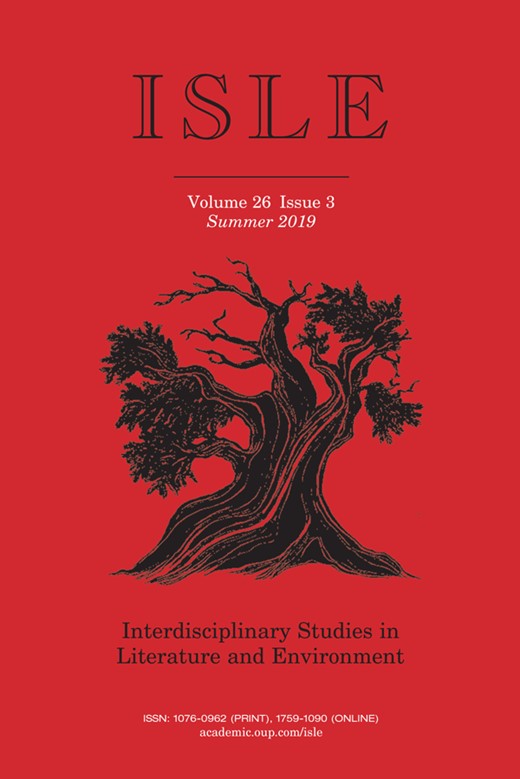-
Views
-
Cite
Cite
John Peterson, Prodigal Sons and Matriarchs: Gendered Homecomings in A River Runs Through It, ISLE: Interdisciplinary Studies in Literature and Environment, Volume 26, Issue 3, Summer 2019, Pages 641–665, https://doi.org/10.1093/isle/isz059
Close - Share Icon Share
Extract
It seemed that the worse sinners we were, the more she loved us.
—Norman Maclean, “The Two Worlds…”
The Gospel of Mark describes Jesus's call to the first disciples in the following scene: “As Jesus passed along the Sea of Galilee, he saw Simon and his brother Andrew casting a net into the sea—for they were fishermen. And Jesus said to them, ‘Follow me and I will make you fish for people.’ And immediately they left their nets and followed him” (New Oxford 1.16–1.19). James Martin, S.J., writes of Simon and Andrew’s decision to follow Jesus: “The two leave their nets and follow—the Greek ēkolouthēsan connotes not simply following a person’s teaching as much as following the individual … It implies a personal relationship with Jesus. Follow me—but also join me, live with me, eat what I eat, meet whom I meet. Share in my life” (135). The intimacy of Jesus’s call serves as an important reference point for a much later story, Norman Maclean’s classic novella A River Runs Through It. Maclean’s eloquent first paragraph recalls and transforms Jesus’s invitation in ways that reverberate throughout his narrative.
In our family, there was no clear line between religion and fly fishing. We lived at the junction of great trout rivers in western Montana, and our father was a Presbyterian minister and a fly fisherman who tied his own flies and taught others. He told us about Christ’s disciples being fishermen, and we were left to assume, as my brother and I did, that all first-class fishermen on the Sea of Galilee were fly fishermen and that John, the favorite, was a dry-fly fishermen. (1)





